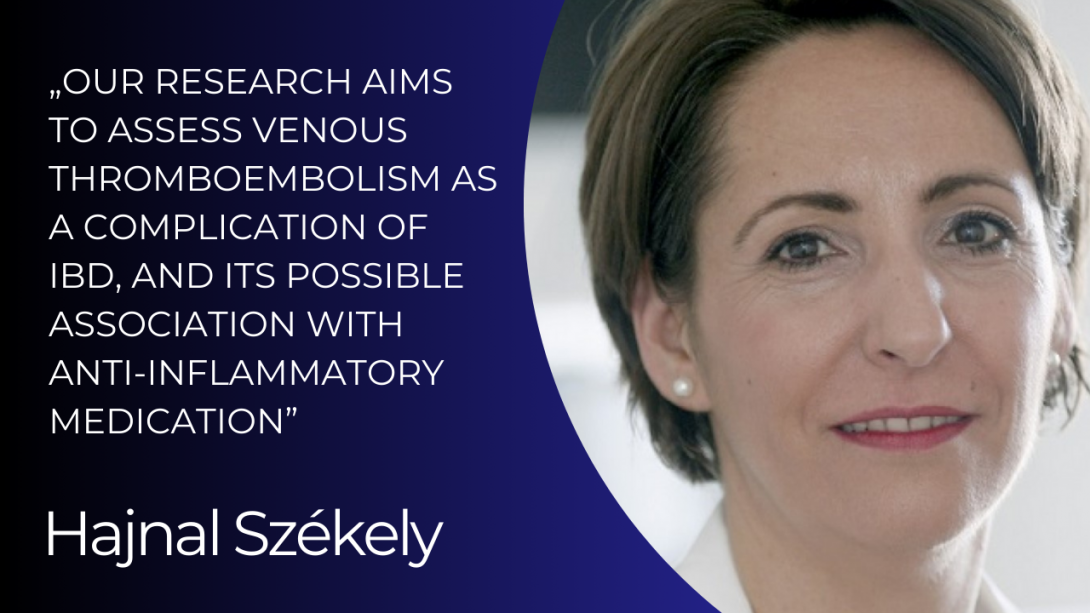
Inflammatory bowel disease (IBD) increases the risk venous thromboembolic events, which are not common, but potentially life-threatening complications of the disease – that’s the reason why it deserves prominent attention. The topic is being researched by Dr. Hajnal Székely, who was named Best Second-Third-Year PhD Student at the Centre for Translational Medicine.
Dr. Hajnal Székely started her work at Semmelweis University, 2nd Department of Internal Medicine (currently Department of Internal Medicine and Hematology) in 2004 and currently works at the Department of Surgery, Transplantation, and Gastroenterology. She heard about the Centre for Translational Medicine when it was still in Pécs. “We knew that the institute led by Professor Peter Hegyi was very efficient and highly successful. I considered joining when the Centre moved to Budapest, and the Institute of Pancreatic Diseases was established. At that time, the idea of cooperation between our groups was born. The idea of participating in CTM’s PhD training program also emerged.
Dr. Székely considers herself a clinician, but she is also interested in scientific work. She is aware that research is a fundamental part of the clinical work. However, during previous years, she had not felt a strong urge to do scientific work. “Because of the fact, that the topics were primarily theoretical ones, I didn't consider that they had direct relevance at the patient’s bedside. For this reason, I was happy to notice that the CTM’s program focuses on subjects that allow translating scientific data into daily clinical practice through well-designed models. These are applicable during everyday work."
The gastroenterology department, where Dr. Székely works is an IBD centre. It is a challenging disease, as IBD is very complex, with many treatment methods available. “Therapeutic methods and medical treatment options are constantly evolving, and we always have to decide individually on how to treat each patient. IBD should be regarded as a systemic disease, which may affect not just the gastrointestinal tract, but several other organ systems as well. The disease may be associated with thromboembolic events, which are now in our focus. My research topic is related to this complication, examining its connection with the characteristics of the underlying disease, as well as its association with the used anti-inflammatory medication.” The results show that this complication is not common, but because it is potentially life-threatening, it deserves special attention. Based on the evidence from research, in recent years using preventive anticoagulant therapy in IBD patients with risk is a common practice. The research group already plans to study how newer IBD drugs affect the risk of venous thromboembolism.
(Szabó Emese)